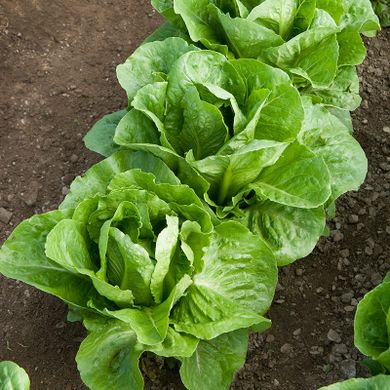Nunhems® commits to a smaller and tastier Romaine lettuce to encourage consumption
Pieces under 500 grams are especially suitable for high-density cultivation systems that reduce production costs
In the Romaine lettuce market, size is very important. In fact, sales and consumption data confirm that in recent years Spaniards have been eating less and less Romaine lettuce because the commercially available varieties are not really adapted to what the consumer wants. Currently, the Spanish supply of Romaine lettuce is based on pieces weighing more than 600 grams which are not easy to preserve or handle and which have a slightly bitter flavour due to the over-ripening necessary for them to reach the standard commercial size.
Nunhems® has once again decided to go against the tide with the clear aim of revolutionising the Romaine lettuce market. Having analysed the main market trends, BASF’s horticultural seed brand has made a firm commitment to a smaller type of Romaina lettuce as the basis for a new strategy that pursues three main objectives: encourage consumption, reduce production costs and more efficient use of the soil and resources needed to grow crops, while reducing food waste.
Double number of pieces per hectare
With a smaller size, the new Nunhems® Romaine lettuce varieties are ideal for high- density growing systems. Pieces of less than 500 grams can be increased from 50,000 to 92,000 lettuces per hectare and production costs can be significantly reduced. “With the prices before shipping that lettuce has registered over the last ten years, a hectare of Romaine needs at least 70,000 pieces to be profitable”, according to Alfonso Fernández, Sales Specialist Salads of BASF Vegetable Seeds.
An intense, sweet taste is the other quality that defines the new generation of Nunhems® Romaine lettuce. Market research confirms that 56% of European consumers associate quality with taste. For this reason, Romaine lettuce organoleptic qualities and consumption experience are a priority for Nunhems®, which also offers important shape and colour novelties, to achieve product differentiation at the point of sale and consumer loyalty.
The new Romaine lettuce varieties also focus on facilitating production throughout the year, as they can be grown in different areas of Europe to complete production calendar. The same varieties can be produced during autumn and winter in Spain and during the spring-summer cycle in northern Europe, always with a top taste and a very attractive size for the entire continental market.
‘Romaine Revolution’
The details of this new sales strategy to turn Romaine lettuce into a Premium vegetable were announced yesterday in La Palma (Cartagena) during the ‘Romaine Revolution’ event, where the Nunhems® brand shared with the main representatives of the industry, the important advantages that the new Romaine varieties incorporate. “We have worked very hard to differentiate Romaine lettuce for its colour, shape and flavour because from now on we want it to be perceived as a healthy and Premium food”, explained Alfonso Fernández, Sales Specialist Salads of BASF Vegetable Seeds during his speech.
“The market for Romaine lettuce is declining in Spain but is growing steadily in the United Kingdom and Northern Europe. Therefore, market data confirms that there is a business opportunity to start doing things differently and, thanks to innovation, turn Romaine lettuce into a food capable of satisfying the current needs of the European consumer”, explained Sara Rodriguez, Client Director of Kantar Worldpanel Spain during her intervention yesterday at ‘Romaine Revolution’.
During the event, which was a success in terms of attendance, Nunhems® offered the main agents of the industry a complete report on the advantages of Big Data to improve decision making in any of the links of the food chain. “Big Data already makes the difference between being competitive or not in a global market and its incorporation into business strategies has a great positive impact on the profitability of companies,” said Gonzalo Martin, Director of Hispatec Analytics.
About BASF
BASF produces chemistry for a sustainable future, combining economic success with environmental protection, without forgetting social responsibility. The more than 115,000 employees of the BASF Group contribute to customers’ success practically in every sector in almost every country in the world. The portfolio is divided into five sections: chemicals, high-performance products, functional materials and solutions, agricultural solutions, gas and oil. In 2017, BASF recorded sales of 64.500 million euros. BASF’s shares are listed on the Frankfurt (BAS), London (BFA) and Zurich (BAS) stock exchanges. You can find more information at www.basf.com.
About BASF’s Agricultural Solutions Division
With a rapidly growing population, the world is increasingly dependent on our ability to develop and maintain sustainable agriculture and a healthy environment. By working with farmers, agricultural professionals, pest management experts and others, our role is to help make it happen. That’s why we invest in a strong R&D portfolio and a broad portfolio that includes seeds and traits, chemical and biological crop protection, soil management, plant health, pest control and digital agriculture. We have teams of experts in laboratories, in the field, in offices and in production, to translate innovative thinking into practical action, to create ideas that work in the real world for farmers, society and the planet. In 2017, our division generated sales of 5.700 million euros. For more information, visit www.agriculture.basf.com or any of our social networking channels.



